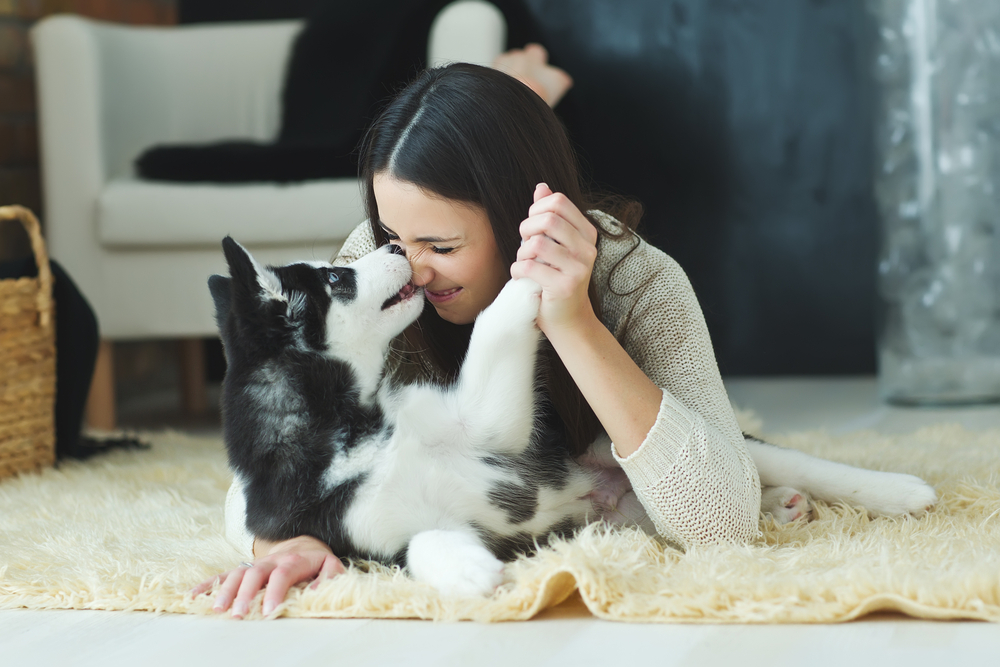Dog owners love a big, loving kiss or smile from their furry friend. That is, unless the dog has bad breath. Foul odors coming from the mouth can turn an otherwise happy moment into an unpleasant experience. Dog halitosis could be a sign of issues with the teeth or gums, or might indicate a health issue in a different area. Keep reading to learn more about when bad breath is more than just a simple annoyance.
Dog Halitosis: The Causes
Dog halitosis occurs when a severe odor emanates from the mouth. There can be a few causes of this condition, but the most common are:
- Bacteria that lead to plaque and tartar on the teeth and gums
- Periodontal disease
- Food trapped in pockets of the mouth
- Bleeding due to various health issues
- Dead tissue
- Broken or infected teeth
- Oral cancer
- Systemic diseases (like diabetes mellitus, liver disease, or kidney disease )
If your dog has significantly bad breath, you should schedule a checkup with your veterinarian so you can get to the root of the problem. If the problem has advanced enough that it is causing bad breath, it most likely already needs veterinary intervention.
Treatment Options for Dog Halitosis
If the cause of your dog’s bad breath is coming from the teeth and gums, the veterinarian will need to perform a thorough cleaning. This cleaning must be done under anesthesia, and requires removing plaque and tartar from the surface of the teeth, as well as under the gumline.
Once the cleaning is complete, the veterinarian will thoroughly examine the mouth and take diagnostic images to see if the structures of the teeth are intact. If there are any that have reached an advanced stage of periodontal disease, the veterinarian might need to extract one or more teeth. If a different health issue is causing the bad breath, that will need to be addressed as well. Blood work can show if another health issue is affecting your pup’s breath.
Preventing Dog Halitosis
An at-home oral hygiene routine for your dog can help prevent the issues that lead to halitosis from ever developing. This includes:
- Regularly brushing your dog’s teeth with canine-safe products
- Changing to a food designed for canine dental health
- Giving your dog some dental treats and chews
- Adding some oral health additives to water
- Applying topical applications like tooth wipes
- Scheduling yearly dental cleanings at the veterinarian
Talk to your vet about the best products to help prevent halitosis in your dog. Some breeds (like toy breeds) might be more genetically disposed to developing periodontal disease, and might need a little extra attention to prevent it. v
At Union Lake Veterinary Hospital, we know that oral health severely impacts overall health for cats and dogs. Our dental cleanings also include a full exam, blood work, X-rays, continuous monitoring, and a fluoride treatment. We only perform dental cleanings under anesthesia for the safety of your dog, and to ensure we offer the most thorough cleaning possible. To learn more or to schedule a dental cleaning, please call (248) 363-1508.

